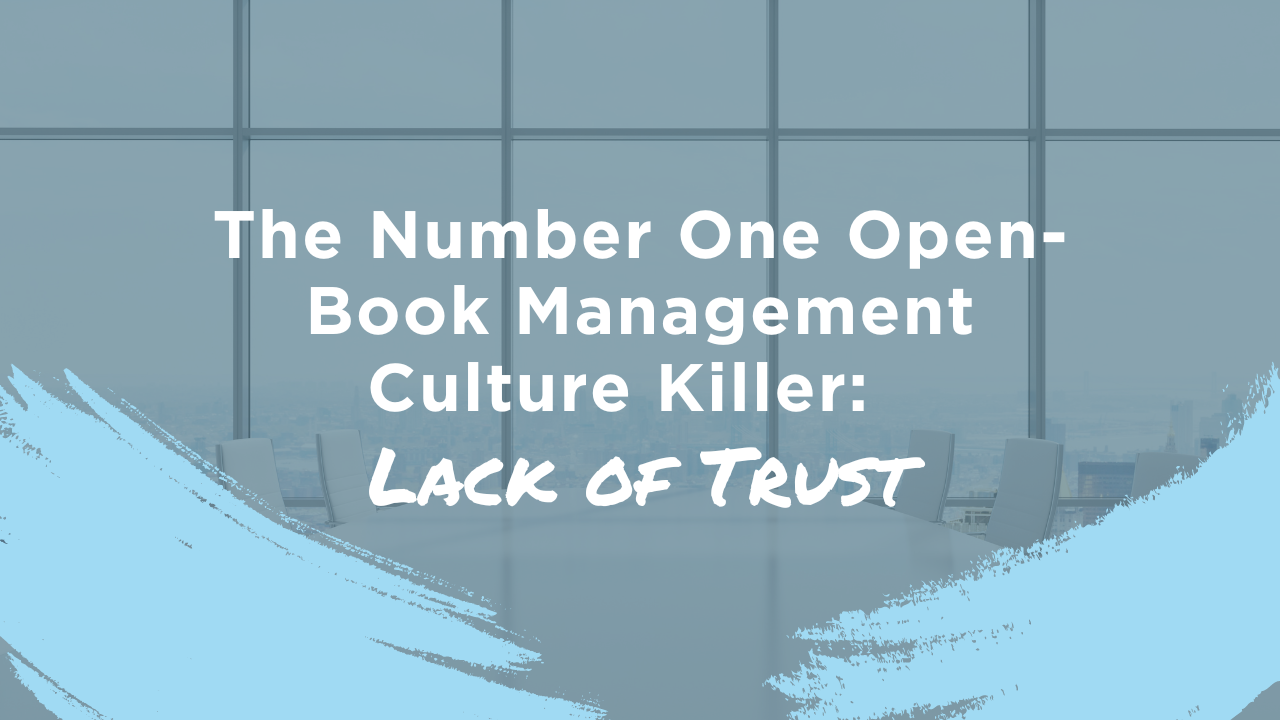If you’re like most business leaders, you’re always looking for ways to educate, empower and engage your employees. Want proof? Studies show that 90 percent of leaders think an engagement strategy will have an impact on business success. The only problem? Barely 25 percent of them have a strategy for implementing it.
Read More
Learning about open-book management is one thing; putting it into practice is quite another. Because it’s such a big business strategy change, many business owners are hesitant to take the plunge. To help you envision how to get started with open-book management (OBM), here’s a Q&A with a real-life practitioner who recently implemented OBM at her company:
Read More
Our company operates in the outsourced contact centre sector. We tend to have relatively few, big corporate clients with large transaction volumes and long term contracts. This means we have quite high levels of single client dependency so we are always trying to make sure we are delivering great services and anticipating our clients requirements so we can satisfy or exceed them. We do a pretty good job generally judging by our client growth and retention rates.
Read More
In the late 1980s, I was a young sports reporter in Kansas City covering the Kansas City Chiefs and San Francisco 49ers game. The 49ers defeated the Chiefs, and they were on their way to a third Super Bowl Championship in seven years. In those days, the 49ers ruled the class of the league.
Read More
Co-authored by Mark Banks Do either of these two scenarios sound like your company? The hard-earned time, energy and money that went into creating a work culture for performance is starting to fall apart. The new implementation of open-book management isn’t gaining any traction. If either of these sounds familiar, you may be suffering from the number one open-book management culture killer: lack of trust.
Read More
Though he’s referring to baseball, Jim Evans’ stance on tracking metrics can be applied to professional organizations just as they are to professional baseball organizations. Metric tracking is a fundamental process for companies that practice the Great Game of Business. And although it’s an essential part of playing The Game, it isn’t uncommon for companies to find themselves at a loss for whether or not they’re tracking the right numbers (what we would call a Critical Number™). Sometimes company leaders don’t even know where to start tracking!
Read More
About Innotec The founders of Innotec, a manufacturer based in Zeeland, Michigan, wove the open-book principles of The Great Game of Business into the DNA of their business right from the get-go in 1992. “We based our organization on the same practices that SRC uses,” says Nick deVries, Innotec’s head of finance. “We want to give ownership and the information needed to make decisions directly to the people doing the work.”
Read More
We’ve seen countless articles on why managers and business leaders need to focus on engaging employees–not only is it generally an important predictor of company performance–but it leads to stronger communication, higher customer satisfaction and loyalty, and increased productivity and profitability. These benefits are widely recognized in organizations running open-book management systems; they encourage higher levels of engagement by their very nature.
Read More
“We need to sell more stuff!” “If only the sales team was on a plan, we would be hitting our profit numbers and making bonuses!” Do you ever hear this chatter in your company? When our bottom line profits are not up to par, we all have a tendency to first focus on the top line. When in reality, there are all kinds of opportunities internally to boost profits. In most companies, additional profits are slipping through the cracks every day.
Read More
A few years ago, one of my relatives who used to own a lawn-mowing business was telling me a story about how the crew members were perfectionists about the lawns. “After we’re done, we walk across the street into the adjoining neighbors’ yards, etc., to make sure we’ve done a great job trimming,” he said. Then, I said, “Why walk across the street? Can’t you tell when you’re trimming?” “No, way,” he said. “You can’t tell when you’re on it. It all looks good from that vantage point. You need a different perspective.”
Read More

.png)

%20blog.png)












.png)



-5.png)

.png)
